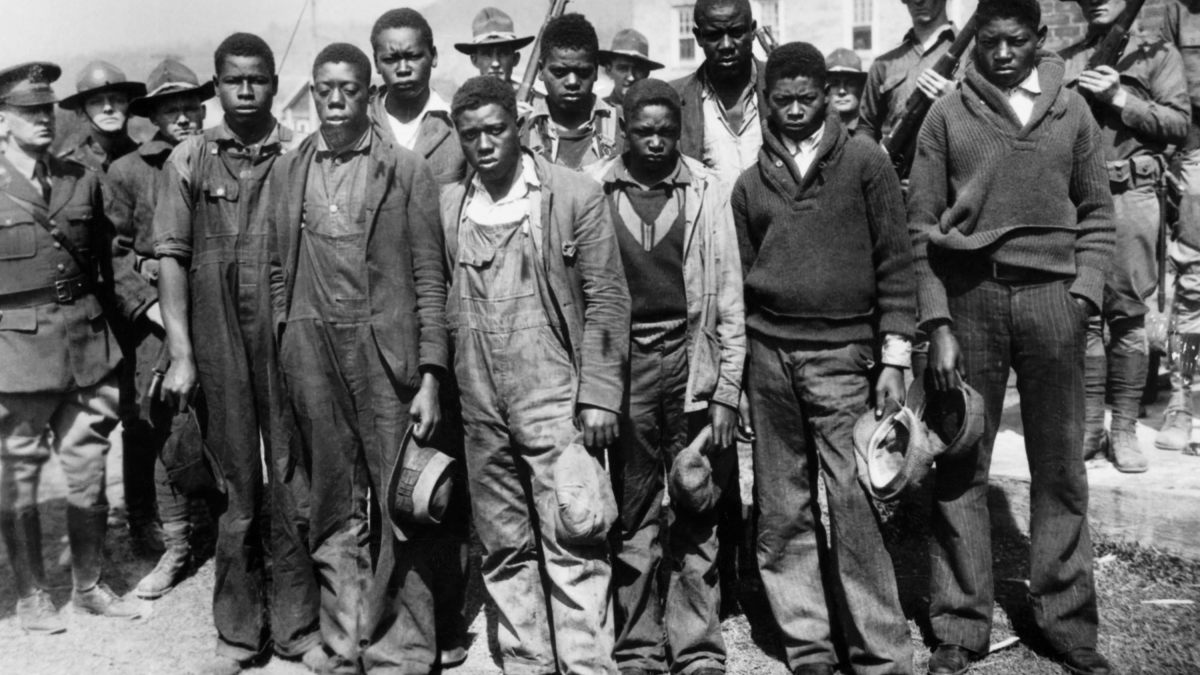ASU leads discussion on Scottsboro Boys through history of minstrel shows

Minstrel shows are relics of a racist chapter in theater history. Actors painted their faces black and caricatured harmful stereotypes, portraying African-Americans as dumb, lazy and deceitful.
Flash forward nearly 100 years. A group of young black males, who would become known as the Scottsboro Boys, were arrested after getting off a train in Alabama in 1931 and accused of raping two white women.
Being deliberately provocative, the Phoenix Theatre and Black Theatre Troupe are presenting a minstrel-style play about the landmark civil rights case. ASU’s Center for the Study of Race and Democracy, meanwhile, has stepped in to host a panel discussion Monday, Feb. 13, on both subjects at the Helen K. Mason Performing Arts Center.
“We debated back and forth whether or not to present it this way because knew it was controversial,” said Walter Belcher, of the Black Theatre Troupe. “It’s bold, provocative, in your face and non-deniable. There’s nothing wishy-washy about it.”
Chandra Crudup, a lecturer in ASU’s School of Social Work and an affiliate faculty member for the Center for the Study of Race and Democracy, said that combining arts and civil rights could have a powerful effect.
“Bringing together people who are passionate about theater and people who are passionate about social justice in one space to discuss solutions to current social justice dilemmas still in our society, is sure to create some positive solutions,” she said.
The community dialogue will preview “The Scottsboro Boys,” a Tony-nominated play, which will start a three-week run April 5. It will present historical information about the Scottsboro Boys case, screen portions of a documentary about their legal fight and start a discussion about the play’s format.
The case involved nine young blacks who were wrongfully convicted after rushed trials, a shoddy defense and all-white juries. Eight of the nine were sentenced to death despite evidence that proved their innocence, including a retraction by one of the accusers.
The Supreme Court overturned the convictions because blacks were excluded from the juries and the defense lawyers were found to be inadequate. Still, it took nearly 20 years for the final defendant to go free.
The case is a landmark for the right to a fair trial.
Minstrel show, a precursor to vaudeville, developed in the 1840s, exploiting stereotypes and romanticizing slavery for white audiences.
The shows minimized a culture into a hurtful and false caricature, said Donald Guillory, a history teacher in the College of Integrative Sciences and Arts. Further, it was "the only significant contact that the white audiences had with ‘black culture’ at the time," he said.
The Center for the Study of Race and Democracy seeks to provide opportunities for people to increase their awareness of social justice issues, said Sarah Herrera, center director. “One of the ways we do this is through our programming,” she said.
Last year, the center provided programming on sports and equality, launched a film and art series, and hosted an evening with actress Viola Davis.
Crudup said the collaboration of the two theaters allows for the show to reach a broader audience and show racial injustice in a different light.
“There is power in telling stories. There is power in music. There is power in revealing the truth of history,” Crudup said. “This production, a musical theater piece based on a true story, brings together all of these aspects.”
More Arts, humanities and education

ASU alum's humanities background led to fulfilling job with the governor's office
As a student, Arizona State University alumna Sambo Dul was a triple major in Spanish, political science and economics. After graduating, she leveraged the skills she cultivated in college —…

ASU English professor directs new Native play 'Antíkoni'
Over the last three years, Madeline Sayet toured the United States to tell her story in the autobiographical solo-performance play “Where We Belong.” Now, the clinical associate professor in…

ASU student finds connection to his family's history in dance archives
First-year graduate student Garrett Keeto was visiting the Cross-Cultural Dance Resources Collections at Arizona State University as part of a course project when he discovered something unexpected:…